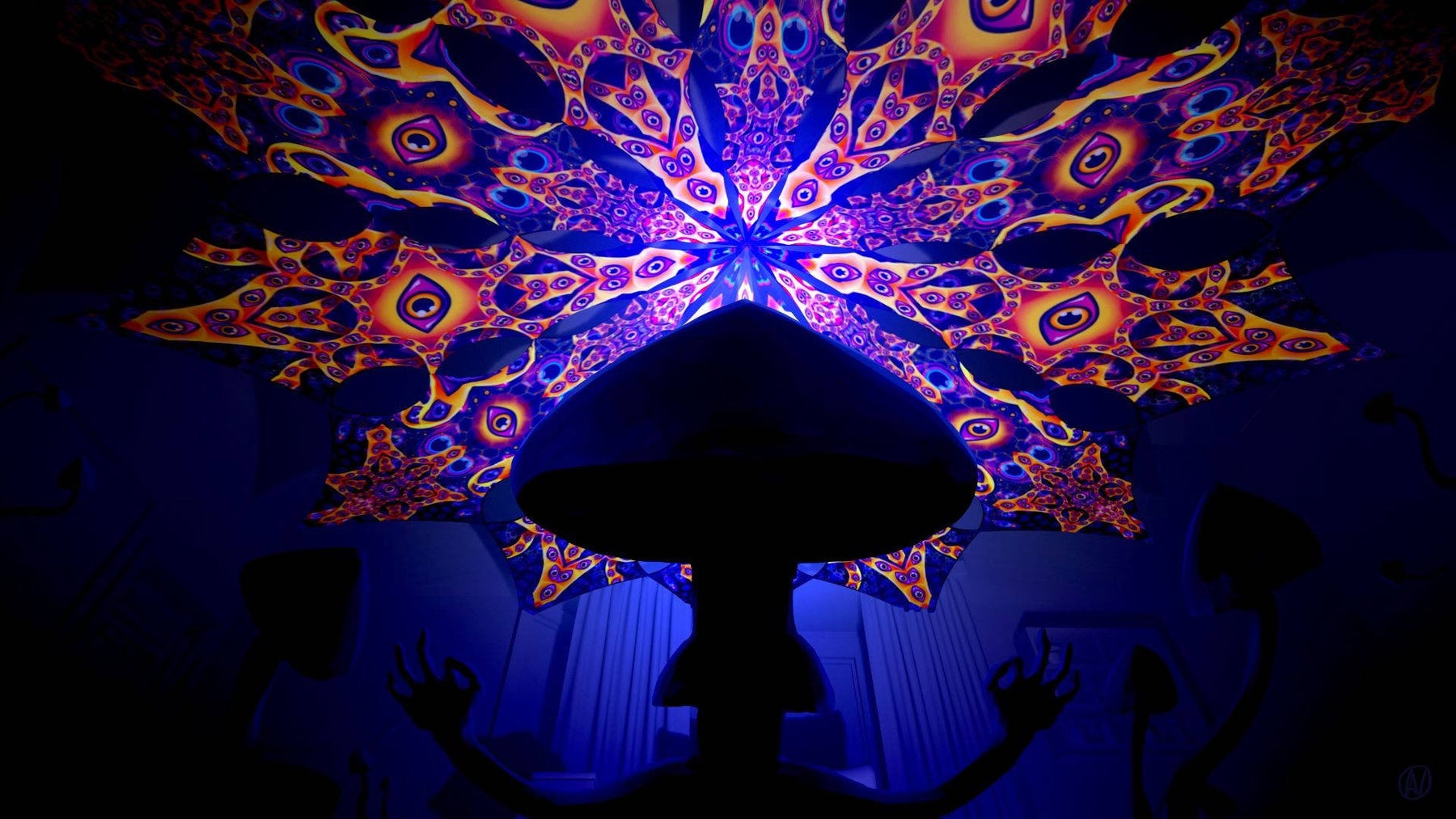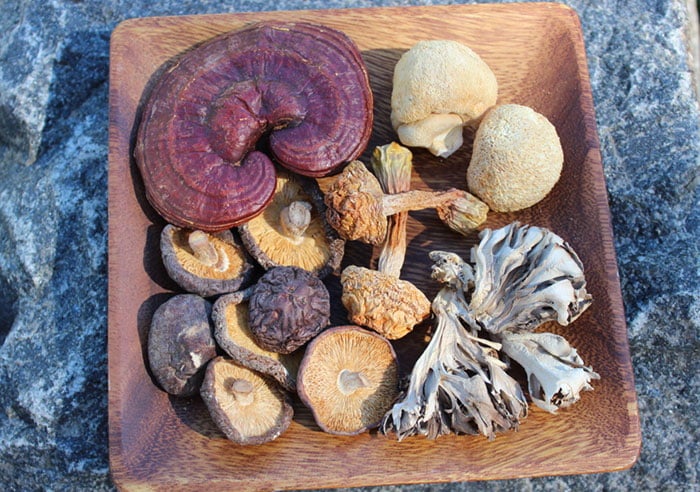News
Mushrooms as Medicine: A Promising Approach for Treating Anxiety and Depression
In the quest for alternative treatments for anxiety and depression, mushrooms have emerged as a fascinating avenue worth exploring. With their unique chemical composition and potential therapeutic properties, mushrooms offer a natural and holistic approach to mental health. This blog delves into the intriguing world of mushrooms as medicine, shedding light on their potential benefits, scientific research, and practical applications. Discover how these extraordinary fungi may hold the key to alleviating symptoms of anxiety and depression and promoting overall well-being.
Unveiling the Therapeutic Potential
Mushrooms have long captivated human curiosity, and their potential as a treatment for anxiety and depression is rooted in scientific exploration. Researchers have turned their attention to the active compounds found in certain mushrooms, particularly psilocybin, which has garnered significant interest for its therapeutic effects on mental health. Psilocybin interacts with serotonin receptors in the brain, modulating neural pathways involved in mood regulation and emotional processing. This interaction leads to a cascade of effects, including reduced activity in the default mode network, which is associated with self-referential thinking and rumination. By quieting these neural patterns, psilocybin promotes a state of openness, increased emotional receptivity, and heightened introspection. Studies have shown that psilocybin-assisted therapy can result in long-lasting improvements in mood, reduced anxiety and depression symptoms, and enhanced well-being. The science behind mushroom medicine is rapidly evolving, shedding light on the profound impact these compounds can have on the human mind and offering a promising avenue for treating anxiety and depression.
Harnessing the Power of Psychedelic Mushrooms

Psychedelic mushrooms have captivated the attention of researchers and mental health professionals for their remarkable ability to induce altered states of consciousness and transformative experiences. As interest in alternative therapies for mental health conditions continues to grow, scientific investigations into the therapeutic potential of psychedelics, including psilocybin-containing mushrooms, have gained traction. Numerous studies and clinical trials have provided promising evidence of their effectiveness in treating anxiety and depression, offering hope for those seeking innovative solutions.
Research surrounding the therapeutic use of psychedelic mushrooms for mental health conditions has demonstrated significant promise. Clinical trials have shown that a single session with psilocybin-assisted therapy can lead to profound and enduring changes in individuals with treatment-resistant depression and anxiety disorders. These experiences often involve a sense of ego dissolution, increased emotional openness, and enhanced introspection, allowing participants to explore and confront deep-rooted psychological issues.
The therapeutic benefits of psychedelic-assisted therapy extend beyond the immediate experience. Many individuals report long-lasting improvements in mood, reduced anxiety and depression symptoms, and an increased sense of well-being and life satisfaction. These sustained effects have the potential to revolutionize mental health care by offering a novel and transformative approach to treatment.
As research continues to unfold, the integration of psychedelic-assisted therapy into mainstream mental health care appears increasingly promising. Professionals in the field recognize the potential of psychedelic mushrooms as a complementary tool for psychotherapy, providing individuals with a unique opportunity to explore their consciousness, gain new perspectives, and address underlying emotional and psychological challenges.
It is important to note that the use of psychedelic mushrooms for therapeutic purposes should only be conducted in controlled and supervised settings with trained professionals. The dosage, setting, and integration of the experience into therapy are critical factors in ensuring safety and optimizing therapeutic outcomes. Additionally, ongoing research aims to further refine protocols and establish guidelines for the responsible and ethical use of psychedelic-assisted therapies.
As the stigma surrounding psychedelics continues to dissipate, there is growing recognition of their potential to revolutionize mental health care. The integration of psychedelic mushrooms into mainstream treatment approaches holds the promise of transforming the lives of individuals struggling with anxiety and depression. By harnessing the power of these remarkable substances and combining them with supportive therapy, we may unlock new dimensions of healing and provide hope for a brighter future in mental health treatment.
Nature’s Allies for Mental Well-being

Medicinal mushrooms are nature’s allies in promoting mental well-being and overall health. Beyond the realm of psychedelics, a diverse range of mushrooms holds remarkable potential for their adaptogenic and neuroprotective properties. Take, for instance, Lion’s Mane, Reishi, and Cordyceps, which have gained recognition for their therapeutic benefits. Lion’s Mane is known for its ability to stimulate nerve growth factor production, supporting brain health and cognitive function. Reishi, often called the “queen of mushrooms,” offers immune-boosting properties and aids in stress reduction. Cordyceps, with its energizing effects, can enhance endurance and alleviate fatigue. These medicinal mushrooms work holistically, regulating stress responses and promoting mental well-being. Incorporating them into your wellness routine can be done through various consumption methods, such as supplements, teas, and extracts. Supplements provide a convenient way to access the concentrated benefits of these mushrooms, while teas offer a soothing and enjoyable experience. Extracts can be added to beverages or recipes, allowing for versatile integration. By embracing the power of medicinal mushrooms, you can tap into their potential to nourish your mind, support your body, and foster overall mental wellness.
Embracing Mushrooms in Mental Health Treatment
As our understanding of the therapeutic potential of mushrooms deepens, they are increasingly being embraced as a valuable tool in mental health treatment approaches. One notable area of exploration is the use of psychedelic-assisted therapy models, where carefully guided mushroom experiences are integrated with traditional therapy sessions. Research suggests that these guided experiences can help individuals gain new perspectives, process emotions, and achieve breakthroughs in their therapeutic journey. By combining the profound effects of psychedelics with the expertise of trained therapists, this innovative approach shows promise in treating anxiety and depression.
Another intriguing concept gaining attention is microdosing, which involves taking sub-perceptual doses of psychedelic mushrooms regularly. Microdosing is believed to offer a range of potential benefits, including enhanced mood, increased creativity, improved focus, and reduced anxiety. While the exact mechanisms behind micro-dosing are still being studied, anecdotal reports and early research suggest that it may have a positive impact on mental well-being. However, it’s important to note that micro-dosing should only be pursued under the guidance of a healthcare professional experienced in psychedelic therapy to ensure safety and appropriate dosing.
Ongoing research is shedding light on the future of mushroom-assisted treatments for anxiety and depression. Studies are exploring the therapeutic potential of specific mushroom compounds, such as psilocybin, and their effects on brain function and mental health outcomes. Preliminary results have been promising, showing significant reductions in symptoms of anxiety and depression, as well as improvements in overall well-being and quality of life. The integration of mushrooms into mental health care holds the potential to transform treatment approaches and provide alternative options for those who have not responded well to traditional methods.
As mushrooms continue to be embraced in mental health treatment, it is crucial to emphasize the importance of professional guidance and responsible use. Working with trained therapists or healthcare professionals knowledgeable in psychedelic-assisted therapy ensures a safe and supportive environment for individuals seeking these innovative treatments. Additionally, ongoing research, clinical trials, and regulatory frameworks will shape the future of mushroom-assisted therapies, ensuring that they are evidence-based, ethically administered, and accessible to those who can benefit from them.
By embracing mushrooms as a potential tool in mental health treatment, we open up new avenues for understanding and addressing anxiety and depression. While more research is needed to fully grasp their therapeutic mechanisms and long-term effects, the growing body of evidence suggests that mushrooms hold immense promise in alleviating the burden of mental health conditions. Through responsible integration, ongoing research, and collaboration between healthcare professionals and the scientific community, we can pave the way for a future where mushrooms are embraced as an essential component of mental health care, offering hope and healing to those in need.
Mushrooms as Allies for Mental Well-being
As our understanding of mushrooms and their therapeutic potential deepens, these remarkable fungi are increasingly being recognized as valuable allies in the treatment of anxiety and depression. From psychedelic mushrooms to medicinal varieties, their unique properties offer a holistic approach to mental well-being. While further research is needed and professional guidance is essential, mushrooms hold immense promise as a natural alternative in the realm of mental health care. By embracing their potential and respecting their power, we may unlock a new realm of possibilities for alleviating the burden of anxiety and depression and fostering greater emotional resilience and vitality.


